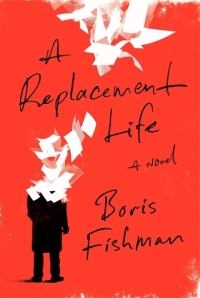Fiction is the lie through which we tell the truth.
Albert Camus
Slava Gelman, the protagonist of Boris Fishman’s brilliant debut novel, is a junior staff member at “Century” magazine. He hopes one day to be published in the magazine: “Only a byline in the New Yorker meant as much. Entire book contracts were given out on the basis of a byline in Century.” A Jewish refugee from the Soviet Union, Slava has distanced himself from his family. He rarely ventures to his old neighborhood in Brooklyn, preferring his spartan studio in the Upper East Side. Slava believes that if he is to achieve his dream of becoming a successful American journalist, he must exile himself to Manhattan:
But if Slava wished to become an American, to strip from his writing the pollution that repossessed it every time he returned to the swamp broth of Soviet Brooklyn, if Slava Gelman — immigrant, baby barbarian, the forking road spread-eagled before him — wished to write for Century, he would have to get away. Dialyze himself, like Grandmother’s kidneys.
A journalist is just another kind of storyteller, and, ironically, Slava finds that the stories he tells best are the stories of his fellow immigrants. His grandfather shows Slava a letter to Grandmother from “The Conference on Material Claims Against Germany”, offering restitution to Holocaust victims. Slava’s deceased grandmother was indeed a victim, having survived the Minsk Ghetto. Grandfather, despite having escaped German persecution as defined in the official letter (“ghettos, forced labor, concentration camps”), feels entitled to restitution and cannot understand why his grandson’s moral scruples prevent him from immediately agreeing to submit a false claim.
Grandfather has survived and prospered, in the Soviet Union and in the United States, because of his ability to outwit the system. One of his fellow refugees explains to Slava that Grandfather “‘got what needed to be got”, whether it was round-the-clock home nurses from the City of New York for his wife or house calls from Soviet doctors for his daughter. He was able to get his family out of the Soviet Union and to the United States only by lying: “At every step, everyone had lied about everything so the one truth at the heart of it all — that abused people might flee the place of abuse — could be told.”
A Replacement Life examines the relationship between truth and fiction. As Boris Fishman says in his author’s note, “The line between fact and fiction, invention and theft, is as loose as the line between truth and justice.” As Slava forges more and more “tales of woe and deceit” for Grandfather’s associates, he begins to forget what’s fact and what’s fiction. And, he wonders, does it matter? The power of the stories he’s writing intoxicates him: “He was a middleman, a loan shark, an alchemist — he turned lies into facts, words into money, silence into knowledge at last.” The stories he fabricates help him understand his family, his culture, and himself more deeply. Before he began forging restitution claims, Slava tried desperately to write articles that would appeal to the editors of Century. All are rejected, and Slava doesn’t understand why. He doesn’t really become a writer until he begins writing with passion, seeking justice for Soviet émigrés.
Slava is confronted with many moral dilemmas in the course of the novel, just as his grandparents had to make difficult choices during World War II and afterwards. Informants, falsified documents, government bureaucrats, the black market, the exchange of valuable information . . . all these things existed in the Soviet Union, and they still exist in Slava’s world. The novel asks us to consider the ways that circumstances shape us. In a conversation with his girlfriend, who is a fact-checker at Century, Slava says, “‘I can imagine myself as the person who’s forging. But I can also imagine myself as the person who turns in the forger. How can that be?'” The answer, the reader supposes, is that like Grandfather, most people do what they need to do to survive.
The novel is thought-provoking, full of wit and humor, and provides great material for a book club discussion. I usually take blurbs with a grain of salt, but Walter Kirn’s summarizes the book very well:
Buy this book for the story, but read it for the character of Grandfather, a fearless, exasperating, tormented, and singular creation. I wouldn’t want to meet him in an alley, but I could have read another book about him. A Replacement Life is that rare thing: a novel that asks the big questions, embedded in a page-turner haunted by characters that walk off the page.
To read more reviews of The Replacement Life, check out the stops on TLC Book Tours. Also, the New York Times recently gave the novel an excellent review — but be warned, the review contains spoilers. Visit Boris Fishman’s website to learn more about the author. He has several readings scheduled in New York this summer and fall.


The grandfather sounds very interesting and complex … certainly a real character. I like the notion of exploring the line between fact and fiction; and how fiction is often deemed to be fact. I’ll definately read The Replacement Life. Thanks!
Saw thus in the NYT. Your review made me even more sure that I want to read it.
Wow. I want to read it!
Sue
>
I thought this book was really slow to start, but I’m so glad I stuck with it! I loved how it discusses fact vs. fiction and how to put a value on suffering. Great review!
I can see this being a great book club choice – so much to discuss!
Thanks for being a part of the tour.
This sounds like a book that leaves you with a lot to think about… interesting.
Sounds like something I might like. Will have to check it out.